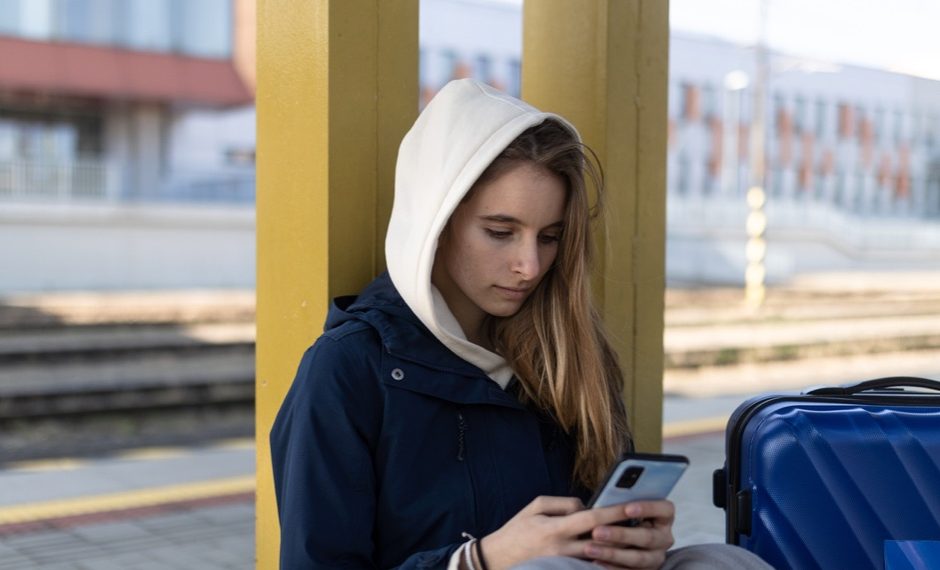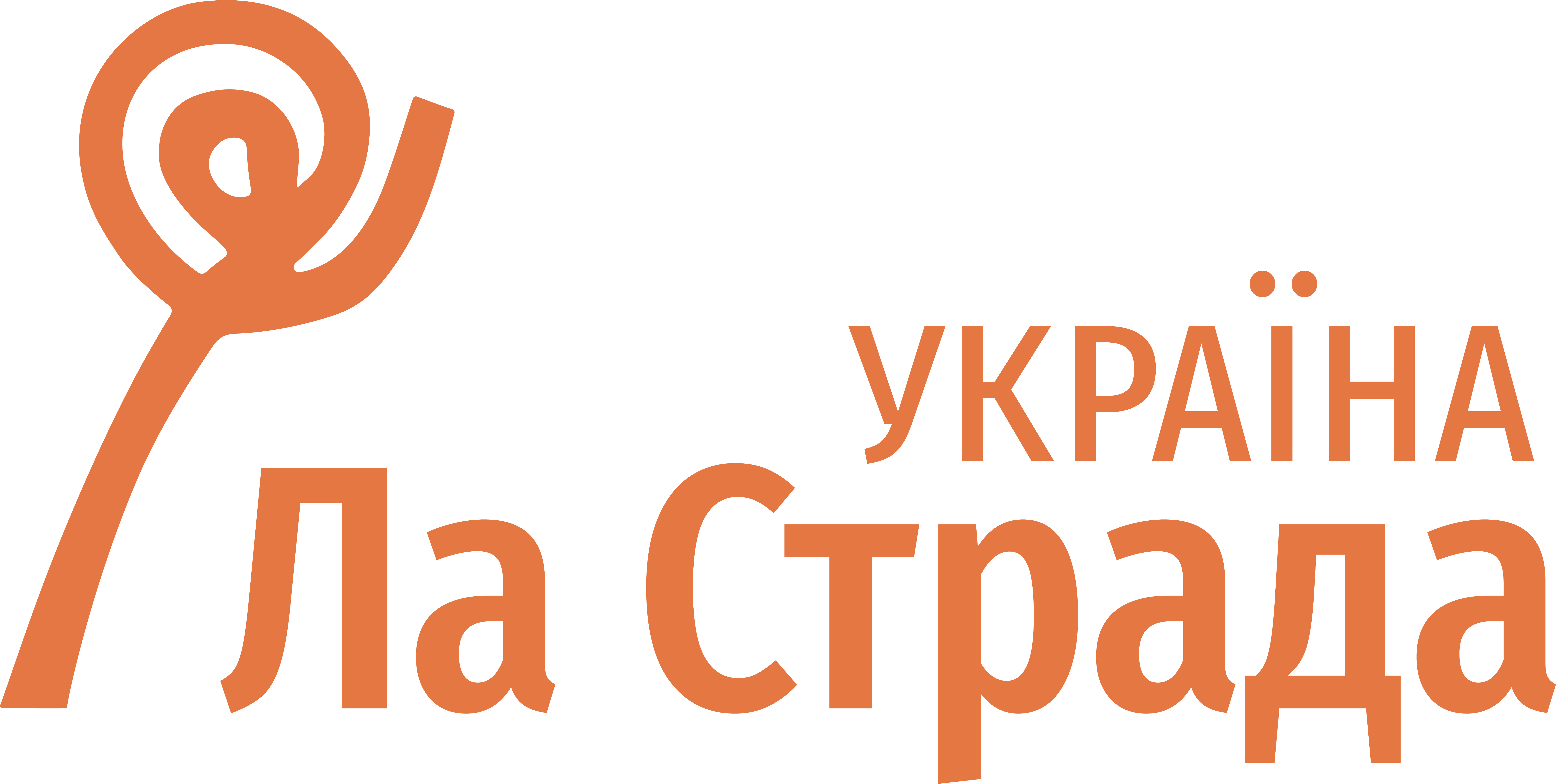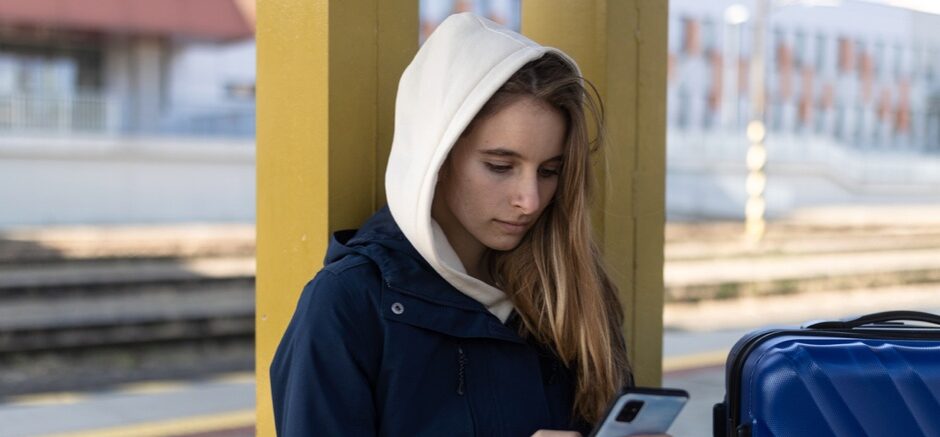The war increased the risks of falling into a situation of human trafficking
July 30 is the World Day Against Human Trafficking. For our fellow citizens, the risks of falling into a situation of human trafficking, exploitation and violence have increased since the start of Russia's full-scale war against Ukraine. Our conversation with the president of the Public Organization "La Strada-Ukraine" Kateryna CHERPAHAYA dedicated to this acute problem and its solution.

- To what extent are the issues of human trafficking relevant for our country today?
I would say that this problem is very urgent. A number of factors come into play.
First of all: in Ukraine, after the large-scale invasion of Russia, the migration processes increased many times. Millions of people were forced to leave their homes and move to other places. According to experts, up to 30% of our fellow citizens during this time lost their jobs, and therefore their means of livelihood. Many have lost established connections that could be used if help is needed.
Today, almost every Ukrainian family in one way or another faces the loss of loved ones: relatives, friends, acquaintances. Many develop depression, and sometimes even panic, which reduces their resistance to various potential risks.
Let's consider one more point: separation of families. Due to the war, many women with children found themselves without the support of their husbands and fathers and are forced to take on all the responsibility for the family - for its maintenance and prospects for settlement. Agree, not everyone is ready for this.
Other points can be listed. But even those mentioned testify that the vulnerability of Ukrainian men and women to falling into the situation of human trafficking has increased. There have always been enough criminals who took advantage of such situations, but now the space for their activities has significantly expanded.
- Do you have recent statistics on this issue?
In the first half of 2022, a total of 17,032 calls were received to the National Hotline for the Prevention of Domestic Violence, Human Trafficking and Gender Discrimination, which works at La Strada-Ukraine. And many of them relate specifically to situations of human trafficking and exploitation.
A significant number of appeals are from citizens who plan to leave Ukraine. Thus, 27.3% among them are interested in employment issues abroad, 18.1% - the rules for traveling outside our country in wartime, 8.2% - these are inquiries about missing relatives or loved ones who left Ukrainian territory as a result of hostilities. There are also requests related to the responsibility for human trafficking - I think this is very important, because people identify this situation and seek to protect their rights. And this is positive.
- Which categories of the population were the most vulnerable to falling into a situation of human trafficking?
First of all, these are internally displaced persons (IDPs) - both inside the country and outside its borders. If in the past the lack of proper work in the country often motivated Ukrainian men and women to go abroad, then during the war it is a matter of security. Now in Ukraine, no city or town is safe, people are physically and emotionally exhausted, many have no means of livelihood, all this makes them vulnerable.
A few months ago, the International Association of La Strada together with Freedom Found carried out an assessment of the risks of falling into a situation of human trafficking during the war, they studied the situation in Ukraine and in the nearest countries that accept Ukrainian refugees. Persons who are forced to flee from the war abroad, but have limited access to temporary protection procedures there, were identified among the risk groups. Often they receive inaccurate information about these procedures or do not have it at all, so they do not know where to go for official registration and obtaining the appropriate status. And sometimes they are simply afraid of official registration, because they believe that if you commit any violation, you will be immediately deported from the country.
According to official data, about 8.5 million of our fellow citizens left Ukraine during the war. Most of them are women, girls and women with children. It is clear that they are most often at risk of falling into a situation of human trafficking. First of all, it is about potential sexual and labor exploitation.
The risk group also includes children unaccompanied by adults or those who are under the care of specialized institutions. In the first months of the war, there were often cases when children traveled not with their parents, but with those with whom it was possible to leave - there could also be danger lurking here.
There are persons without documents who fled under shelling and were unable to take anything with them. Or persons who do not have Ukrainian citizenship, but lived on its territory and were forced to leave due to the war. They face certain difficulties, first of all, with the preparation of documents, registration, and receiving assistance.
And, of course, those categories of citizens who also had additional vulnerability factors in Ukraine remain in a significant risk zone. For example, persons with disabilities, persons with chronic diseases that require special care or treatment. These can be elderly people, representatives of the LGBT community and others.
- What problems do they most often face abroad?
People do not know the legislation of the countries to which they are going, they do not have information about the rules for crossing the border, about the possibilities of accommodation in another country, in particular with children.
A serious problem is lack of knowledge of a foreign language. When there is a lack of knowledge and information, when a person is poorly oriented in a new place, when he is stressed, depressed or even in despair, he can quite easily fall into a situation of human trafficking, exploitation and any kind of violence.
I have already mentioned the subscribers of our hotline who are looking for work abroad and want to get a job there in any way. But ignorance of the language, inability to check potential employers also makes them extremely vulnerable. There were cases when a person performed work, but was not paid money and did not know where to turn and whether it is worth looking for the truth, because the employers insisted that one should be grateful for a roof over one's head and a shelter.
Previous experience of domestic violence can also make our fellow citizens vulnerable to the situation of human trafficking. We had an appeal when a woman said that she had been subjected to domestic violence for a long time in Ukraine. While abroad, she has already spent all available resources for living, but she does not want to return home, so as not to be exposed again. Therefore, it is okay to accept any, even risky, part-time job offer.
The largest number of inquiries about situations of human trafficking, current and potential, come from our fellow citizens from Poland, Germany, Austria, Italy, and the Netherlands. These countries sheltered a large number of Ukrainian men and women, and we will always thank them for this. But where there are more of our displaced people, there are more opportunities for those who are willing to take advantage of their difficult situation.
- What kind of exploitation do victims of human trafficking suffer the most?
If we talk about the statistics of appeals that come to our hotline, then the current or potential situations of human trafficking concern either labor exploitation or a combination of labor exploitation with certain sexual violence.
It happens that displaced persons are offered shelter by some private persons - most often for women and girls, women with children. And then it turns out that for that shelter, a woman must fully take care of the household, clean the house, around it, take care of one of the family members. And may face certain sexual harassment from the owners.
There is an appeal that Ukrainian IDPs were sheltered by private individuals, through whom payments were received for our citizens. Some owners not only forced them to perform some work, but also controlled the freedom of movement of the guests, did not allow them to leave the apartment earlier or later than a certain time. They could set rules according to which one should leave the room only twice a day - to go to the toilet. And if a person began to resist such rules, the owners threatened to keep his payments for themselves.
Our fellow citizens often simply do not know their rights. But I want to emphasize: in European and other countries, human trafficking, exploitation and violence are also considered crimes that are being fought. There are relevant laws for this. The main thing is not to be silent and ask for help.
- How does "La Strada-Ukraine" combat human trafficking in wartime?
We provide advice and support through National hotline for the prevention of domestic violence, human trafficking and gender discrimination. She works 24/7 not only by phone 0800 500 335 or 116 123 from a mobile phone, but also through electronic communication channels (Telegram: @NHL116123, Facebook: @lastradaukraine, Skype: @lastrada-ukraine, email: hotline@la-strada.org.ua). The latter are very important for those of our citizens who are currently abroad.
We regularly conduct preventive and educational activities, information campaigns, in particular with risk groups, provide them with advice and recommendations, tell them where to turn if any difficult moments arise.
We cooperate with other state, international and public organizations that take care of relevant issues. Joint events were held with colleagues from Moldova, Poland, and Switzerland so that experts from other countries could inform our specialists who work with risk groups and internally displaced persons about the protection procedures for Ukrainians abroad and the risks they may face there. be exposed to where they can turn for support. During such events, we receive reliable information that further helps us in our work.
We try to spread a variety of useful information through social networks to reach as many risk groups as possible. We provide useful links, telephone numbers of services and organizations that provide assistance in other countries, explain the rules and procedures of their work.
We are members of the European network of public organizations "La Strada", which work in more than 20 European countries in the field of combating human trafficking. Since the beginning of the war, they have been actively involved in providing assistance to our citizens: they immediately began preparing the necessary informational materials in Ukrainian and Russian for our refugees, distributing them at the points of crossing the state border of Ukraine, housing refugees. These materials contain many practical tips on how to avoid the risk of falling into a situation of human trafficking, exploitation and violence, information and contacts for help and support services, etc.
- What do you need to know in order not to become a victim of human trafficking?
Do not trust anyone with your passport. Documents certifying your identity should always be in your possession. Make and save copies of important documents or take pictures of them and send them to yourself by email, cloud storage or people you trust and communicate with about your trip.
Be wary of offers from private individuals, who are not representatives of official structures and organizations, coordination or volunteer centers.
Leave relatives or friends detailed information about your future place of stay abroad with address and contact numbers or try to provide information immediately upon arrival.
Try to maintain constant contact with relatives or friends. Agree with them on a code word, phrase or symbol that will let them know you are in danger.
Find out phone numbers of Ukrainian embassies and consular missions abroad and take them with you. If you find yourself in a difficult situation or something threatens you, contact the representatives of your country who will help you. If there is no embassy of Ukraine in the country where you are staying, call the embassy of Ukraine in the neighboring country.
In the vast majority of countries, non-governmental organizations and services that provide assistance to persons who find themselves in a difficult situation are actively working. Keep their contacts with you and contact them when needed.
In the event that you feel threatened by a person offering you help abroad, or you have already identified that you have fallen into the hands of fraudsters, call 112 or contact the relevant services and/or organizations, including the police, the embassy, border guards services, volunteers, humanitarian missions, etc.
- Currently, the State target program for combating human trafficking for the period until 2025 is being prepared for approval. Why now? And do you participate in the work on it?
This is an important document that contains a set of measures regarding preventive activities and assistance to victims of human trafficking, their rehabilitation, as well as regarding the prosecution of perpetrators of criminal acts. The program was actually supposed to be approved at the end of last year, but this process was delayed, then the war began. Of course, war is a big challenge for our country, but human trafficking issues have their own challenges and this work cannot stand still, it cannot be forgotten. Therefore, the process of revising the Program was started, taking into account the realities and difficulties of the war. The Ministry of Social Policy, as the national coordinator overseeing this Program, held a strategic session with the participation of all relevant subjects and representatives of international and public organizations, "La Strada" was also involved in it. Joint developments should be formalized in a new version of the text of the Program, which will soon be submitted for approval.
Volodymyr DOBROTA,
National Press Club "Ukrainian Perspective"

